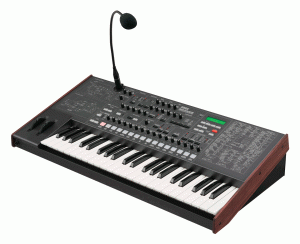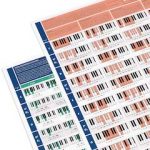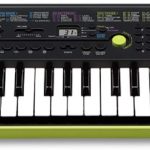Buying a synthesizer is often a far more complicated process than the one you’ll use to purchase any other instrument.
This is because, by nature, a synthesizer can be responsible for playing many different/all roles within a given piece of music and so all aspects of its sound and build must be considered. Also, there is a multitude of factors that can influence your choice besides sound- a synthesizer is an electrical instrument and so should also be viewed from a technical perspective by someone familiar with its construction.
Here we have a short guide dedicated to ensuring that you buy the right equipment to suit your needs.
Your first consideration should be your own needs. Are you a performer? Do you simply want a synthesizer for your own entertainment? Or are you working on a recording studio (in which synthesizers are a crucial feature)?
If you’re purchasing the instrument only for fun, then you shouldn’t have too much of a problem. There are many different outlets that sell beginner or intermediate models with a fairly good range of sounds and features that are unlikely to break the bank. However, if your needs more closely resemble either of the other two situations, you may have a harder job.
Think about the following:
Multi-timbrality: This is the synthesizer’s ability (or lack thereof) to produce imitations of multiple instruments at the same time. If your synth can’t do this, it is described as “mono-timbral” and will require multi-tracking in a recording environment to simulate multi-timbrality.
Sequencer: A sequencer gives the keyboard the same functionality as a multi-track recorder; meaning that it records a series of events for playback later. Note that the keyboard will only record the sequence of key presses and play them back- any external noise will not be recorded.
Number of keys: Most will be provided with a compliment of 61 keys, which equates to five octaves. However for players more familiar with a piano, there are synths available with the full 88 keys.
Further and more obvious considerations to be made are:
Sound: Obviously, don’t make a purchase if you feel the keyboard you’re viewing sounds tinny or doesn’t mimic other instruments very well.
Feel: If you (or a friend/relative) know how a good synth should feel, don’t buy something that doesn’t fit that standard. You can often gauge a keyboard’s quality by playing a familiar tune.
Price: You are the only one who knows what you can afford to spend, and I’d advise against telling salesmen exactly what this amount is. Don’t pay more than you need to because a keyboard has a label attached- likewise, don’t buy something just because it appears to be a bargain. More often than not, it will prove to be false economy.


